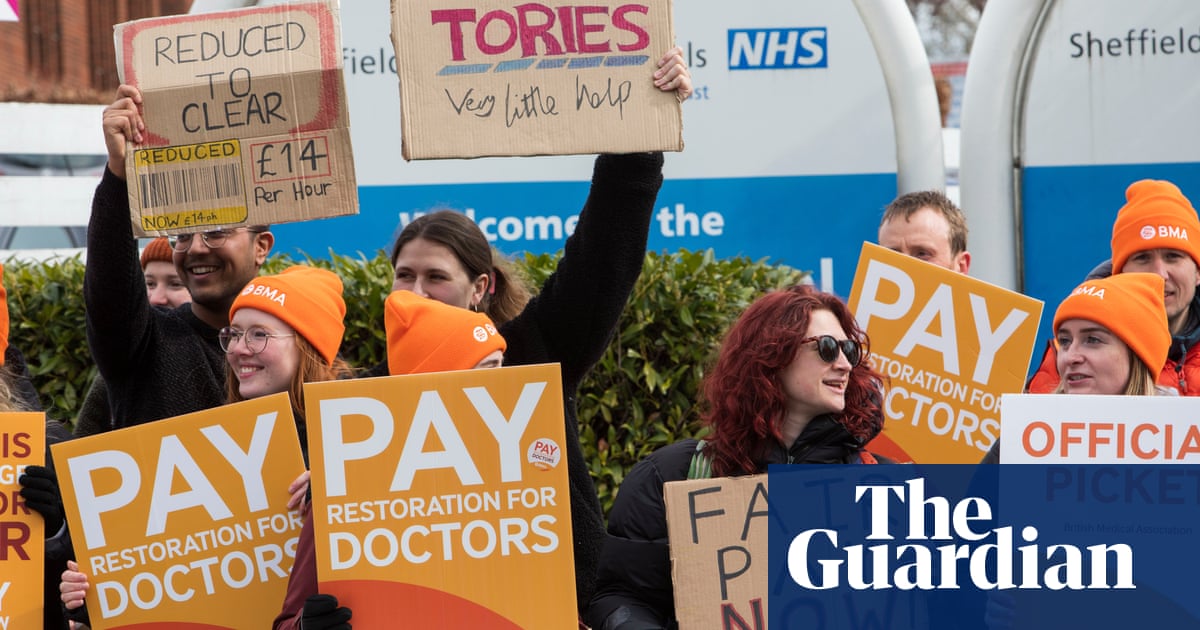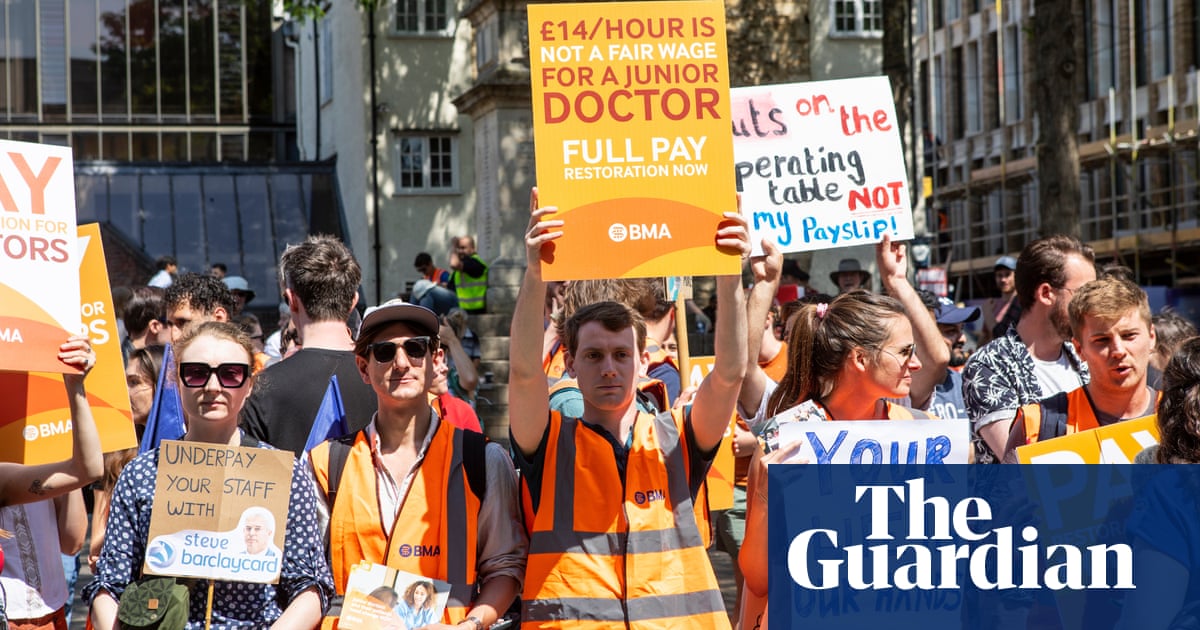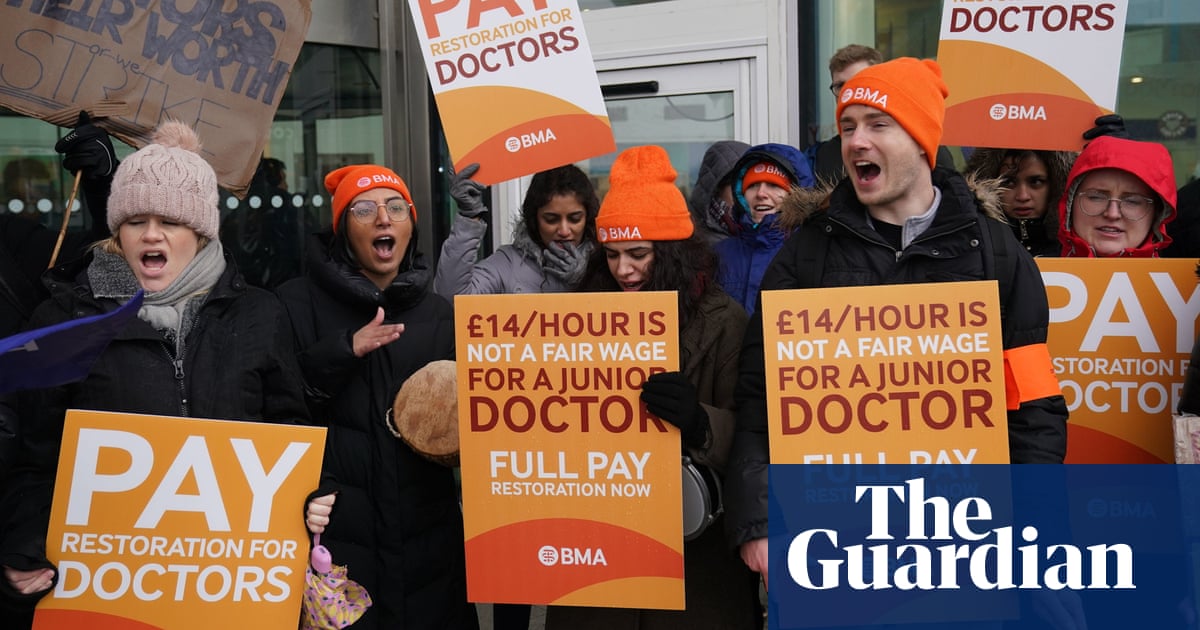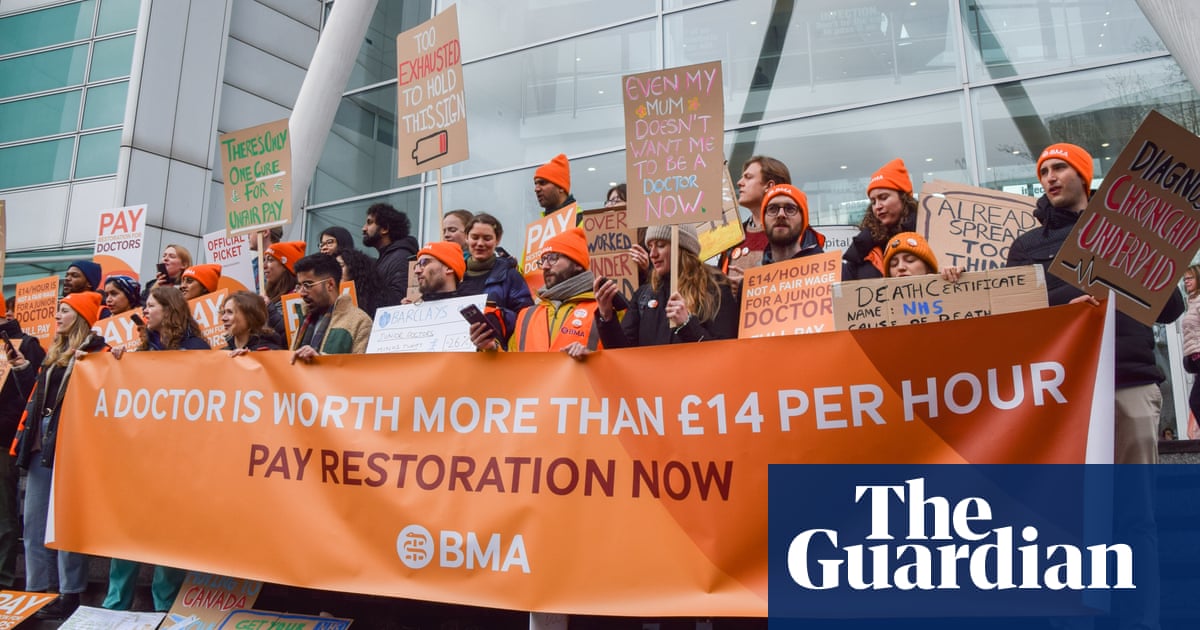
Having grown up in Romania and spent some time in hospital as a child, Dr Cristina Costache thinks she has seen the future of the NHS if the government does not urgently invest in its staff and services.
The kind of specialist paediatric work Costache does across two hospitals in Leeds is done by voluntary organisations in Romania and resources are thin on the ground, which is why she began working in the UK seven years ago.
On Tuesday, she was joined by dozens of colleagues – and large piles of donated snacks – outside Leeds General Infirmary, some of the thousands of junior doctors taking part across England in a 96-hour walkout over pay and conditions.
“It’s sad to see the NHS going that way,” she said. “I’ve experienced that and I don’t want anyone here to see that. It’s scary. I’ve seen how bad it can be and I’m on the picket to prevent things from going that badly.”
Costache said she has seen the NHS decline significantly over the last decade.
She added: “I teach students adult medicine and some of them who don’t have hospital experience ask, ‘is it usually this bad?’. And I say ‘sorry, but it is’.
“For example, there are patients finding out they have diabetes from their discharge notes because there’s nobody to chat to them. And yet, healthcare is a right.”
“I love this job so much. I wanted to give the care that children deserve. Some children end up spending their whole lives in hospital.
“Emotionally, this job has a big toll. You see things that are hard to see. If you have a child die, you have to switch and not pass on the sadness to the next child.
“What I really like about the UK is compassionate care. My fiance is trying to get me to leave because he sees me coming home exhausted and getting ill. I left a country once and I could leave again, but it’s because I care that I’m here.”
Outside University College hospital in central London, supportive drivers were honking, sound systems were blaring and demands were being chanted as junior doctors picketed.
Rebecca Lissmann, 29, a junior doctor, said she felt “sick in her stomach” when the strikes were announced.
“I don’t want to be on strike, but I hope patients can see that this action is also about keeping doctors in the NHS and to save the service.”
Lissmann is a trainee in obstetrics and gynaecology. “I absolutely love my job but it is a really hard job. People’s lives are genuinely at risk.
“In obstetrics, you deal with people having some of the best or the hardest days of their life. You have big conversations with people having miscarriages.
“To do that in a service that is chronically underfunded, where there are gaps in the rota being filled last minute, all the time, where I’m missing lunch and staying late. I think a lot of junior doctors feel they are not able to provide the care they would like to see for their patients because of the current situation.”
At Addenbrooke’s hospital in Cambridge, cars honked in support of a 10-person picket line that had been holding placards and thanking passersby for their support since 8am.
For Tanmay Anand, 26, a junior doctor in his second foundation year currently working on trauma and orthopaedics, the decision to strike comes from concern for patient care and to improve conditions for future junior doctors.
“The system is now so under-resourced that [they] do not have the capacity to train me.” Anand said this affects his ability to care for his patients and become the doctor he always dreamed of being.
He said overtime is also a given. “You’re contracted to work an average of 48 hours a week but there was not a single week in my first rotation where I worked 48 hours. The average was at least 60 hours. Those 12 extra hours are unpaid.
“There was one week that I counted because I was so tired, where I worked 114 hours. Across those four months in that first rotation, I lost half a stone in weight.”












